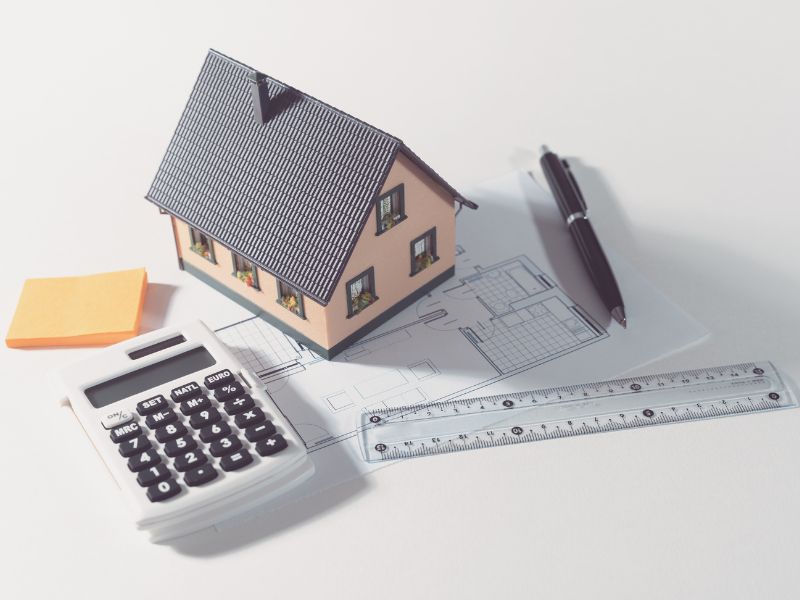- Detailed Construction Plan: Lenders require a comprehensive construction plan, including blueprints, materials, labor costs, and a timeline. This plan helps them assess the project’s feasibility and determine the loan amount.
- Licensed Builder or Contractor: Most lenders insist that you hire a licensed and insured builder or contractor. The builder’s credentials and experience play a significant role in the approval process.
- Down Payment: Construction loans usually require a higher down payment compared to traditional mortgages. Expect to put down at least 20% of the total project cost.
- Good Credit Score: A strong credit score is essential for securing a construction loan. Lenders typically look for a minimum credit score of 680, but a score of 720 or higher will improve your chances of approval and better interest rates.
- Debt-to-Income Ratio: Lenders prefer a low debt-to-income (DTI) ratio. Generally, a DTI ratio below 45% is favorable. This means your total monthly debts should be less than 45% of your monthly gross income.
- Proof of Income: You’ll need to provide documentation of your income, such as pay stubs, tax returns, and bank statements. This helps lenders determine your ability to repay the loan.
- Appraisal: An appraisal of the property and the planned construction is required. This appraisal estimates the future value of the completed home, ensuring the loan amount aligns with the property’s value.
- Disbursement of Funds: Unlike traditional mortgages, which provide a lump sum payment, construction loans disburse funds in stages based on the progress of the construction. These disbursements, or “draws,” are made after each phase of construction is completed and inspected.
- Interest Rates and Terms: Construction loans generally have higher interest rates than traditional mortgages due to the increased risk involved. The loan terms are also shorter, typically lasting only until the construction is completed.
- Loan Approval Process: The approval process for construction loans is more complex and rigorous than for traditional mortgages. It involves a detailed review of the construction plans, builder credentials, and the borrower’s financial stability.
- Budget Wisely: Ensure you have a detailed and realistic budget for your project. Factor in potential cost overruns and contingencies.
- Plan for Inspections: Be prepared for multiple inspections throughout the construction process. These inspections ensure that the project is progressing as planned and meeting quality standards.
- Understand the Loan Conversion: Know the process for converting your construction loan into a traditional mortgage once the construction is completed. This usually involves another round of approval and possibly additional fees.

One of the crucial steps in the home building process is securing a construction loan. Unlike traditional mortgages, construction loans are designed to cover the costs of building a home from the ground up. Here’s what you need to know about construction loan requirements and how they differ from conventional loans.
What Are Construction Loans?
Construction loans are short-term, high-interest loans that provide the funds necessary to build a residential property. These loans are typically used for a period of one year or until the construction is completed. Once the construction is finished, borrowers often refinance the construction loan into a traditional mortgage.
Key Requirements for Construction Loans
- Detailed Construction Plan: Lenders require a comprehensive construction plan, including blueprints, materials, labor costs, and a timeline. This plan helps them assess the project’s feasibility and determine the loan amount.
- Licensed Builder or Contractor: Most lenders insist that you hire a licensed and insured builder or contractor. The builder’s credentials and experience play a significant role in the approval process.
- Down Payment: Construction loans usually require a higher down payment compared to traditional mortgages. Expect to put down at least 20% of the total project cost.
- Good Credit Score: A strong credit score is essential for securing a construction loan. Lenders typically look for a minimum credit score of 680, but a score of 720 or higher will improve your chances of approval and better interest rates.
- Debt-to-Income Ratio: Lenders prefer a low debt-to-income (DTI) ratio. Generally, a DTI ratio below 45% is favorable. This means your total monthly debts should be less than 45% of your monthly gross income.
- Proof of Income: You’ll need to provide documentation of your income, such as pay stubs, tax returns, and bank statements. This helps lenders determine your ability to repay the loan.
- Appraisal: An appraisal of the property and the planned construction is required. This appraisal estimates the future value of the completed home, ensuring the loan amount aligns with the property’s value.
How Do Construction Loans Differ from Traditional Mortgages?
- Disbursement of Funds: Unlike traditional mortgages, which provide a lump sum payment, construction loans disburse funds in stages based on the progress of the construction. These disbursements, or “draws,” are made after each phase of construction is completed and inspected.
- Interest Rates and Terms: Construction loans generally have higher interest rates than traditional mortgages due to the increased risk involved. The loan terms are also shorter, typically lasting only until the construction is completed.
- Loan Approval Process: The approval process for construction loans is more complex and rigorous than for traditional mortgages. It involves a detailed review of the construction plans, builder credentials, and the borrower’s financial stability.
What You Need to Know Before Applying
- Budget Wisely: Ensure you have a detailed and realistic budget for your project. Factor in potential cost overruns and contingencies.
- Plan for Inspections: Be prepared for multiple inspections throughout the construction process. These inspections ensure that the project is progressing as planned and meeting quality standards.
- Understand the Loan Conversion: Know the process for converting your construction loan into a traditional mortgage once the construction is completed. This usually involves another round of approval and possibly additional fees.
Securing a construction loan requires careful planning, a solid financial foundation, and a clear understanding of the construction process. By meeting the key requirements and understanding how these loans differ from traditional mortgages, you can navigate the financing aspect of your home-building journey with confidence.



